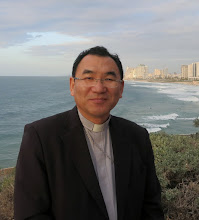Yesterday, on 9th September, while making pastoral visit to Colombia, Holy Father issued the apostolic letter Motu Proprio “Magnum Principium” on the issue of the approval of translations on the liturgical texts.
You may find English translation of the text in this link of the Holy See site.
In this apostolic letter, Holy Father is granting much more authority to local bishops' conferences on the issue of translation of liturgical texts from Latin to local languages in accordance with the spirit of the Second Vatican Council.
In this regard, Holy Father decided to modify the Canon Law 838 and clarified the role of the Congregation for Divine Worship and the Discipline of the Sacraments and local Bishops' conference. While we have to wait to see how actual practice would be changed as so many liturgical laws and regulations, including the "Liturgiam Authenticam" which set out the principles of the liturgical translation, are still in force and will be affected.
However, first and most, I am very much grateful to Holy Father to make this decision to grant much more authority over the translation of Latin texts to local bishops' conference as Japanese Catholic Church has been facing difficulties to finally receive approval over the Japanese translation of the current Missal for quite sometime.
After the third edition of the Roman Missal was promulgated in 2002, the liturgy commission of Japanese Bishops' conference (CBCJ) started their work to translate the Latin text to Japanese. Though I have never be a member of the commission on liturgy, I got to know how difficult it is to translate exactly the same as Latin text while we debated over the results of their hard work during the general assembly of Bishops.
Present Japanese edition is called "provisional edition" as some of the original section of the first edition of the Roman Missal were not translated such as solemn blessings. So the work of the liturgical experts in the commission was not just revising the existing translation but to start from scratch.
Then it came to the approval of the texts by the Holy See. As the entire translation is too huge to be reviewed at once, they were sent to the Congregation part by part as Bishops' Conference had given green light to the works done.
How? Japanese translation was translated back to English to be reviewed by the congregation as there are no one to read Japanese. As the Congregation has their own authority to decide how to review the proposals, they sometimes employ help from Japanese clergy or religious to examine the translation. But, as you can imagine, it takes time. It really takes time.
I do not want to go deeper into details of our exchanges but there are number of issues over translation to be resolved before we could receive approval on the Missal. It is important to say that the works have been done by number of well trained experts on liturgy and not just by Bishops as such. I should say their hard works are praiseworthy, trustworthy and very much professional.
I hope with this change by the Apostolic Letter, we might have new translation of Missal as soon as possible in Japanese Catholic Church.
At the same time, I sincerely hope this direction of granting much more authority to local bishops' conference may be extended some other issues such as selection of new bishops.
Subscribe to:
Post Comments (Atom)


Hello Bishop, can you explain why it would be wise to grant more authority to the local bishops conference regarding the selection of new Bishops? Thanks in advance- I wish you a very blessed sunday!- Don
ReplyDeleteMay I presume that you know the selection process for bishops? For most dioceses in America and Europe, congregation for Bishops do the work while for most dioceses in Asia, Oceania and Africa, Propaganda Fide is in charge.
ReplyDeleteIn Asia, it is only Philippines which is under Congregation for Bishops and some Eastern Rites in India have other process to follow.
Before Holy Father makes final choice for Bishops in Mission territory, Propaganda Fide's member cardinals make selection based on the list of three candidates prepared by Nuncio of that country.
Of course Nuncio consults local bishops and some religious or laity before he makes a list of final three names but these consultations are made privately and individually. While Nuncios are good diplomat and well trained work in different culture and situation, they are not almighty to understand local reality of the Church community at once. So quite often, this process of finalizing candidates into three finalist takes quite a long time. For instance, one diocese in Japan has no bishop for more than 4 years now. I myself was an apostolic administrator of another diocese for 4 years after several attempts to make final list failed.
But in any case, secrecy has to be observed and there are no consultation to local Bishops conference.
So what I am suggesting is that to assist Nuncio's work, local bishops conference should be involved in making final list of three candidates to present to Propaganda Fide for consideration.
Thank you for explaining the situation in Japan- I wasn't aware of that there's a difference in the selection process between mission territories and the west, it makes perfect sense now. Greetings
Delete